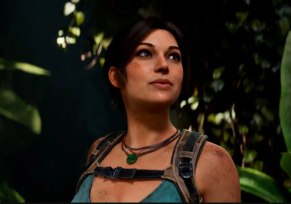Warren Spector has been one of gaming's most respected designers for decades. Now he hopes to take his experience to the classroom through a graduate level program focusing on game development at University of Texas in Austin.
Longhorns just became cooler.
We had a chance to speak with Spector and he dished details on the program and what he's been up to following Epic Mickey 2.
GameNGuide: Talk about the program at UT Austin for a moment.
Warren Spector: Well, there are a lot of programs around the world that teach game development now and I live in Austin. I got my masters degree at the University of Texas and it bugged me that UT didn't have one. So, I've been working with UT for about ten years now and we finally got one going. There's an undergraduate program that's been going on for a while and now we're starting a graduate level program. I'm pretty psyched.
GameNGuide: What's going to separate the graduate level program from the undergraduate?
Warren Spector: With the undergraduate level program, you're learning how to be a great game programer, a great game designer and be a great game artist. That's sort of the focus of the undergraduate program. How do you just do all the things necessary to make a game? At the graduate level, we want to take all those people from around the world and not just UT. These are people who already know how to be great game programers, great game designers and great game artist. We want to teach them the skills required to sort of lead teams, lead projects and innovate on the design side along with paying attention to the commercial aspects of making games. It's about business leadership, creative leadership and process leadership; something that isn't being taught very much at UT or anywhere else actually.
GameNGuide: How are you taking your own experiences and applying it to the curriculum?
Warren Spector: That's a great question. We're actually making the curriculum now as early as it is. The big thing for me is, as much as I don't have any control over this, I don't want this to be a program where you get people "who can't get jobs teach." What I want is for people who have a lot of experience to come in here and sort of communicate all the things they've learned over the years. I've been doing this for thirty years and I know something. I don't know if it's any good but, I know something. Paul Sams, who is one of the other founders of the program, is the COO at Blizzard for crying out loud. I suspect I could learn something from him. I've just started talking to people and I'm sure Paul is talking to people also in the industry. We just want to get people in the industry who really know what they're talking about and are still doing it frankly. Not just people who are looking to get out of development or haven't made it in development.
GameNGuide: When it comes to the admissions process, what are you looking for in candidates?
Warren Spector: The thing is what has me most excited is that we're only taking twenty students here. If you get into the program, you are one of the very best. The best of the best. That's a really good description of what the game industry is like. If you can't tell me you're the best something, your odds of getting a job is very slim. We sometimes get a hundred applications for one position so competing to get into this program is the first lesson that the students are going to learn. It really matters how good you are.
GameNGuide: What's the plan for students on the first day of class and then on?
Warren Spector: Well I have some ideas about that but until we nail down a curriculum, I'm not sure what I'm going to say. Lets leave that level of detail for the next time we talk.
GameNGuide: How many inquiries have you received so far since the announcement?
Warren Spector: Given that we haven't finalized the curriculum and don't have our admission requirements pinned down yet, it's been amazing. I've gotten....Wow, I don't even know how many. It's been dozens; not a huge number but a nice number. I've gotten quite a number of inquiries for those who want to be in the program and nearly as many who want to teach. We just announced it right? I suspect that once we release more information, that number will go up quite dramatically.
GameNGuide: You just mentioned you were getting inquires from teachers. What are you looking for in graduate level professor?
Warren Spector: The big thing is that the teachers are going to be the same as students. We're not trying to teach you how to be a programer, a designer or an artist. We're assuming you're coming in from another program and industry with that knowledge already. We're going to hold the teaching staff to that same standard. If I look at your resume and you've only worked on mediocre games, have been changing jobs every year or been unemployed for three years, you're not going to get a job. We want people who have experience and real expertise. They're going to go through the same interview process that I would give anybody looking to work at Junction Point or Ion Storm.
GameNGuide: To elaborate further, are you looking for teachers proficient in individual aspects of the industry?
Warren Spector: As long as you understand that this could change. I think we're going to need people with a strong production background because producers within the game industry are typically the ones who manage processes and people. I guess we need some people who are more creatively orientated because I don't want this to just be a program that teaches people just how to work a spreadsheet or using Microsoft Project. I want people who understand the process. What it's like to be a game director? What does it mean to have to get programmers, designers and artist all pulling in the same direction when they essentially don't even speak the same language? I don't know your background but if you're not a programer and you try to talk to a programer, it's like they're speaking another language. It's nuts. So suspect that we'll want some teachers who have more of a creative background as well.
GameNGuide: Considering your thirty plus years as a designer, did you ever see the industry getting into academia the way it has?
Warren Spector: Oh hell no.
(laughter)
Are you kidding? I was working on my doctorate, my PHD when I dropped out to go make games. My mom is still crying; it's unbelievable. But no, I never saw the video game business getting as big as it is. I never saw the impact like folks in Washington caring what we did. It's amazing. I remember it was probably 1995 or 1996, I started working with the International Game Developers Association on their education committee and we couldn't fill up this tiny room with people interested in teaching games. Now its amazing with over five hundred universities and colleges teaching game development. It's outrageous so no, I never imagined it. The funny thing is; you know what I don't want to turn into is an old fart now.
GameNGuide: Please do
(Laughter)
Warren Spector: Ok well be careful what you wish for. I remember at Origin Systems in like 89 and 90, I would sit around with Richard Garriott and Chris Roberts. We would look at each other and say, "You know we're going to change the world. How come no one can see it?" Everybody thought we were nuts, in fact all the business guys at Origin thought we were crazy. But you look around now, I'm not saying that we did it but games did it. Games are everywhere now and they've changed the world. Maybe there was an inkling that people might teach games one day but not the way they are now. It's all over, it's great.
GameNGuide: The program is launching in the fall as the next generation consoles from Microsoft and Sony are set for release around that time also. It was mentioned that one of the program's goal is to always keep up with industry changes along with having students create a game by the end of the program. How is that going to work in a classroom?
Warren Spector: We're expecting a project or more to come out of the year people are going to be in the program. It doesn't seem likely that they're going to be building an Xbox One or PS4 title in a year but what we need to do is find the skills that translate from smaller projects to larger projects. I think there are a bunch of projects around that do a really good job of teaching games as art. We don't want to go quite that far so we're going to be focusing on smaller scale projects. Projects that bring innovation to a more commercial setting. We don't want people just graduating and just knowing how to make indie games. Not like it's anything wrong with that because the indie movement is just doing some amazing stuff. One of my frustrations is that I don't see a lot of the indie artistry or innovation getting translated into the commercial space. I see this type of program as kind of a way of showing people how to innovate in the context of a more commercial product. Again, there's the possibility that things could change but my hope is that we'll run them through a process that's very similar to what a developer would go through if they were pitching or creating a project for Electronic Arts or Ubisoft.
GameNGuide: Speaking on the next-generation consoles, what are your thoughts on them?
Warren Spector: People often mistake my personal opinions for what I think globally. Globally I think the next-generation consoles are super powerful and if you have enough money, you're going to be able to do some amazing things on them. They fall short and are kind of weird in a couple of ways obviously. I think both Sony and Microsoft are looking like they're trying to reach out less to the core gamer and more to a mainstream audience. You may like it or not but it's a reasonable decision. Personally, I've been working on bigger and bigger and bigger games. Every year they've gotten bigger and I just want to do something smaller. I'm really intrigued by this.
(Holds up tablet)
That means a billion potential players but with a smaller scope and smaller scale. I'm not saying that tablets are the future of games. I'm saying that for me, tablets are pretty interesting right now so I'm not thinking too much about next-gen platforms. Six months from now, I might be doing a startup and working for Microsoft. I have no idea.
GameNGuide: Outside of teaching, what's next for you?
Warren Spector: It's a little too early to talk about that. I still have games I want to make and I am looking for the "perfect thing." And if the "perfect thing" shows up, I will do it. If it doesn't, I won't. We'll see. I honestly don't know. Right now, I haven't taken a vacation in 30 years. I'm just enjoying not working right now. I want to feel what people feel when they're "bored." When that happens, I'll get to work.
GameNGuide: Being on vacation, what's been peaking your interests?
Warren Spector: I've been playing some games, reading a lot, watching a lot of basketball. I've gone to a couple of auto races; hung out with my wife. Been doing a lot of speaking and lectures also. I've been thinking about what comes next; plans that may or may not happen. I've been keeping real busy, trust me.
GameNGuide: Well thank you so much for your time; it's been an honor speaking with you.
Warren Spector: It's my pleasure it was fun.
GameNGuide: I'm so serious. Deus Ex and Deus Ex: Invisible War are like classics to me.
Warren Spector: Dude, I'm just a guy who makes games. It's been fun.








